As the threat of terrorism continues to hang over societies the world over, Mark James is the man with responsibility of making sure that Jersey is ready to respond. He spoke to Tristram Colledge
WATCHING the horrific Paris terrorist attacks unfold two weeks ago, many Islanders would have found the situation hard to comprehend.
And as the shocking extent of the death and destruction became fully evident, thoughts might well have turned inwards.
What would happen if this type of attack was to occur in Jersey?
And how would the Island cope in the aftermath?
The man whose job it is to answer those questions is Mark James.
The 49-year-old, the Island’s long-standing Fire and Rescue Services chief, recently took on the additional role of Jersey’s emergency planning officer – a post left vacant when previous officer Joe Carnegie resigned in October.
With the Paris attacks coming only a few weeks after Mr James took on the position, he was suddenly thrown into the deepest of deep ends.
As the threat level suddenly increased, he attended a number of meetings to discuss what the Island’s response would be to the growing Europe-wide terror threat.
It was decided that although there was no intelligence to suggest that Jersey was at risk of an attack, security would be increased at the Harbour and Airport.
But just what was going through his head when the news began to break?
‘You watch it with a degree of professional interest, but also with horror,’ he says, speaking from his Rouge Bouillon office.
‘It’s hard to imagine anything on that scale, it really is.
‘Fortunately we don’t tend to have major disasters or incidents in Jersey, but that’s why we need to practise and make it as realistic as we can.’
And that is exactly what the emergency services have done.
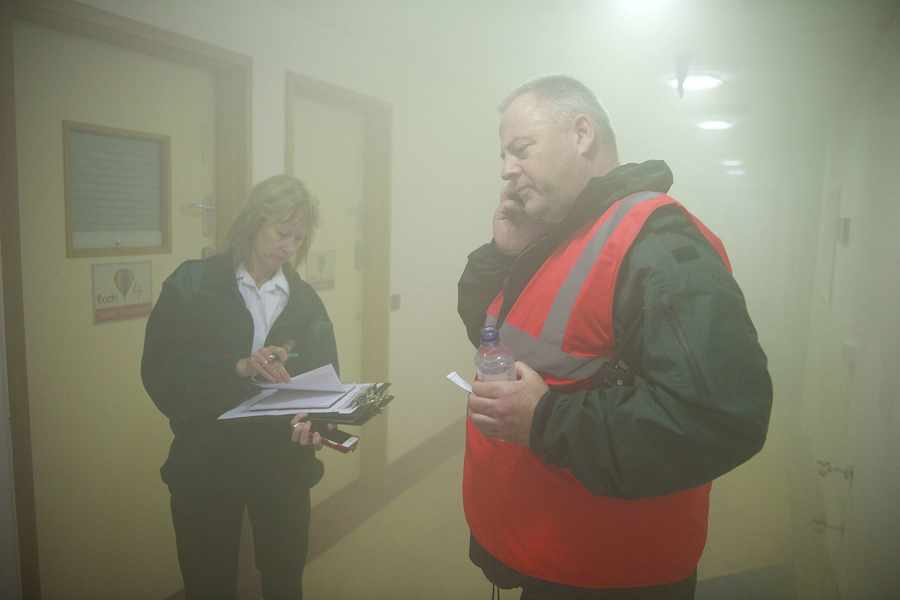
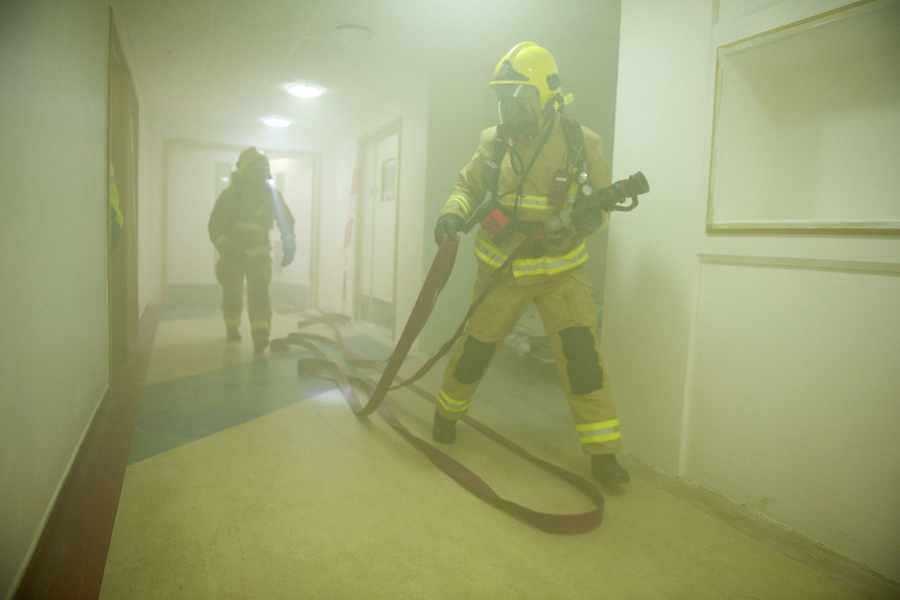
On Wednesday evening, doctors, nurses, paramedics, firefighters and police officers came together to take part in Operation Seawood, an exercise focused on responding to a fire in Robin Ward at the Hospital.
‘We chose that exercise deliberately to test us,’ said Mr James.
‘We have the Airport, the Harbour, the fuel farm and large buildings, so we’ve got the potential for most types of incidents and there’s no point in making an exercise too easy because you won’t learn anything from it.
‘We deliberately pick those exercises that are going to test our plans, and hopefully we will learn lessons.
‘We’ll make improvements and if there was an incident we would be better prepared.’
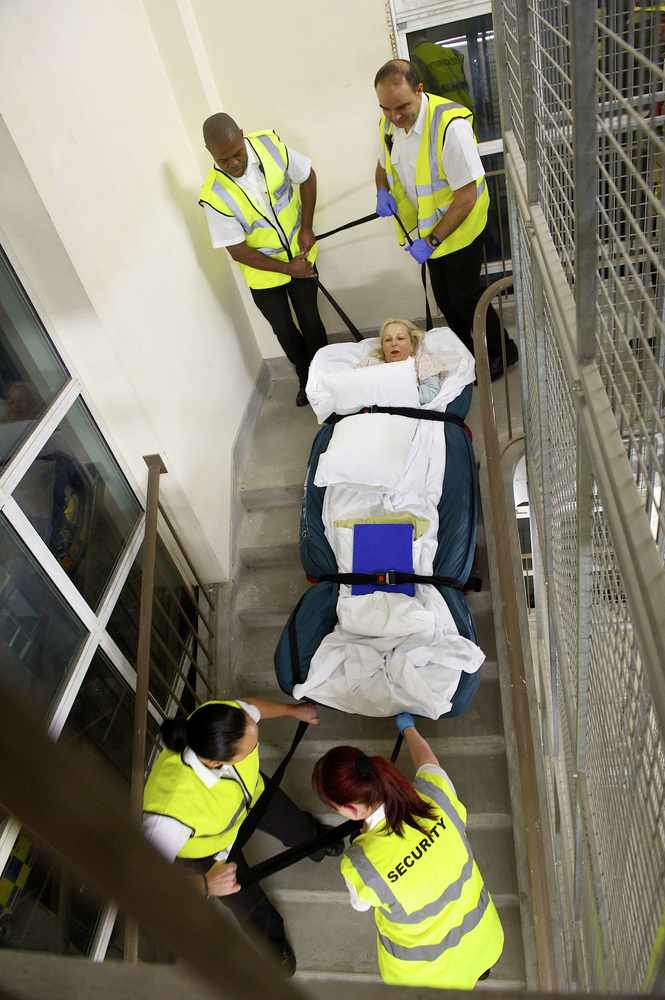
As Mr James says, Operation Seawood is one of a number of drills recently held to test the response of the Island’s emergency services.
‘In April the situation involved an armed gunman roaming around Jersey and in July it centred on a fuel tanker crashing into a bus full of people at the Airport.
And although the locations are different, the response strategies are very similar.
‘There are two elements really,’ Mr James explains.
‘There’s dealing with the threat – the police deal with that and they have procedures such as armed responses.
‘Then there’s the aftermath, when the threat has been neutralised.
‘It’s almost inevitably going to involve casualties – that’s going to be the same if it’s a plane crash, a car crash or a fire.
‘A lot of emergency planning is dealing with the consequences.
‘The cause almost doesn’t matter too much as we use the same procedures that we would in any type of event.’
It is clear that Mr James has a passion for the subject – something that is reinforced by an emergency response-heavy CV.
- The scenario was based on a lone gunmen who was seeking retribution against his former employer.
- It included hostage situations.
- There was simulated gunfire no live rounds were used.
- All emergency services were in operation, including the States and Honorary Police, Fire and Rescue Service, Ambulance and Coastguard.
- Sixteen actors played the roles of casualties.
- Four scenes took place across multiple locations including areas near the north coast and La Collette in St Helier.
- The exercise took six months to plan.
- A total of 159 officers have been trained.
- Three police dogs were used on the day.
- The exercise was scheduled to start at 10 am and finished at about 2 pm.
- The emergency services travelled around the Island with sirens and lights on but they did not break the speed limit.
- The media will tracked event at each stage and were fed information as if it was a real scenario.
Since joining the Essex Fire and Rescue Service at the age of 23, he has gained three university degrees, including MAs in risk, crisis and disaster management and integrated emergency management.
And to add to his impressive academic record, he has the practical experience to match.
In 2002 he was seconded into the UK government’s Fire and Resilience Directorate to help fire and rescue services respond to urban disasters in the wake of the September 11 terror attacks.
Five years later he was awarded a scholarship to study emergency management in the US – a road that led him to observing practices at the National Emergency Management Centre in Washington DC and to spending time with the Los Angeles Fire Department – photographs of which hang proudly on his office wall.
‘When I was working for the UK government, it was during the Iraq War, and with the talk of weapons of mass destruction we thought there might be a deliberate chemical or biological attack, particularly on the London Underground.
‘With the help of the military, we developed new procedures, new equipment and new vehicles, and those spread as far as Jersey.
‘Then the 7/7 London bombings happened and the threat seemed to change from weapons of mass destruction to a more traditional explosion scenario.
‘It then became more about learning how to rescue people from collapsed buildings.
‘The training was centred around tunnelling into collapsed buildings and being able to locate survivors – almost the type of skills you would use in a earthquake zone.
‘However, we’ve now moved onto a threat which is about radicalised individuals and what they can do.
‘Over the past decade, terrorism has evolved and it will continue to evolve, especially as we get better at responding and the security services get better at preventing and detecting.’
In 2005 a simulated major emergency chemical terrorist attack on Cyril le Marquand House took place. It involved the Police, Fire Service. Ambulance crews, doctors and volunteers.
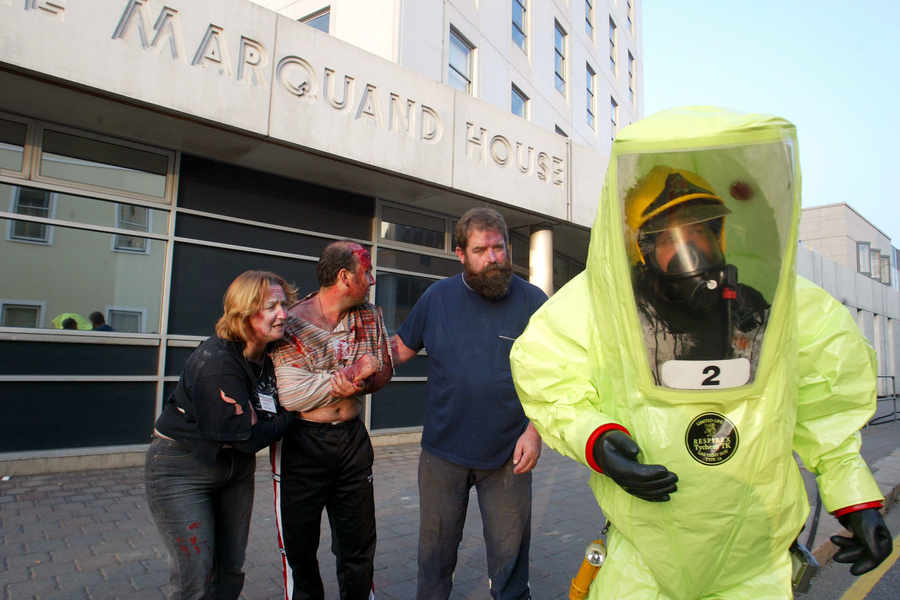
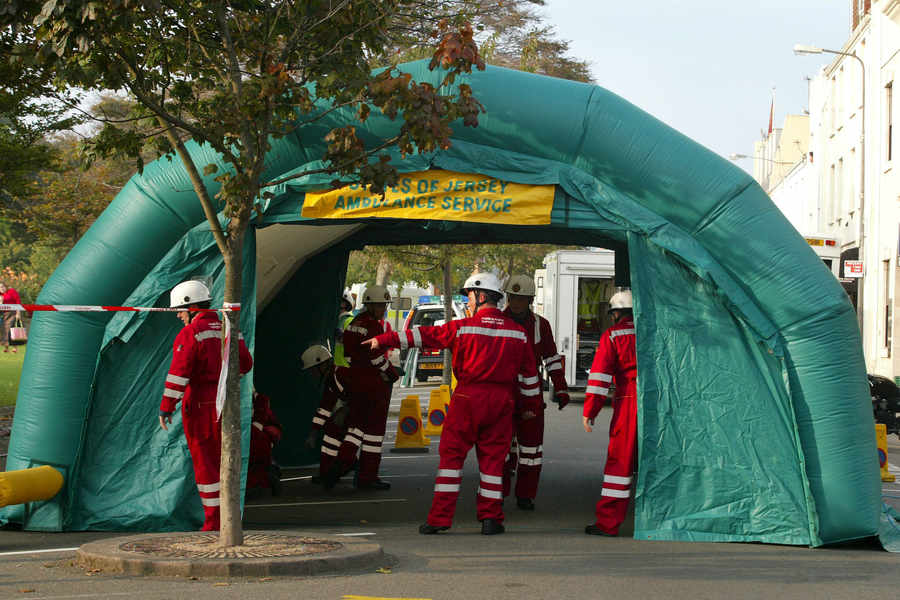
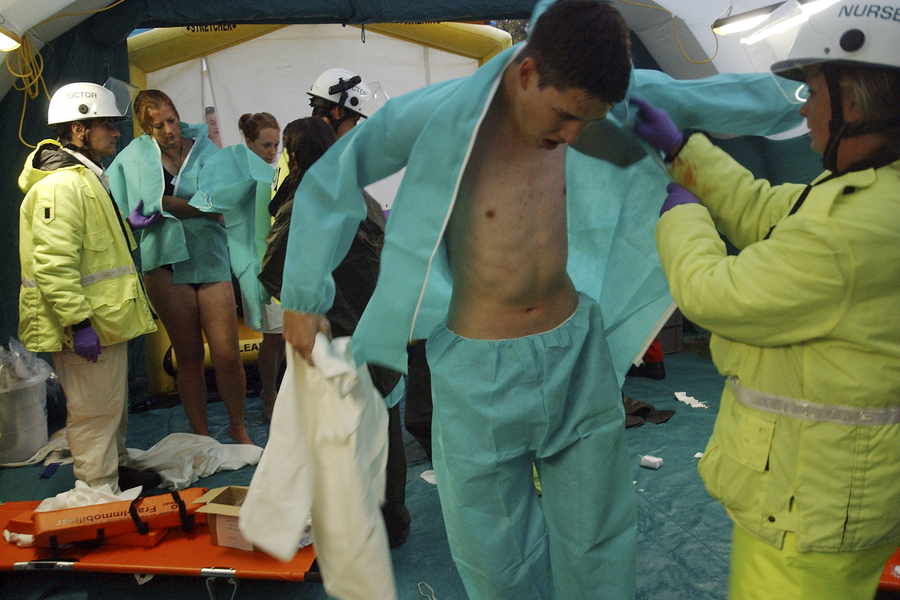
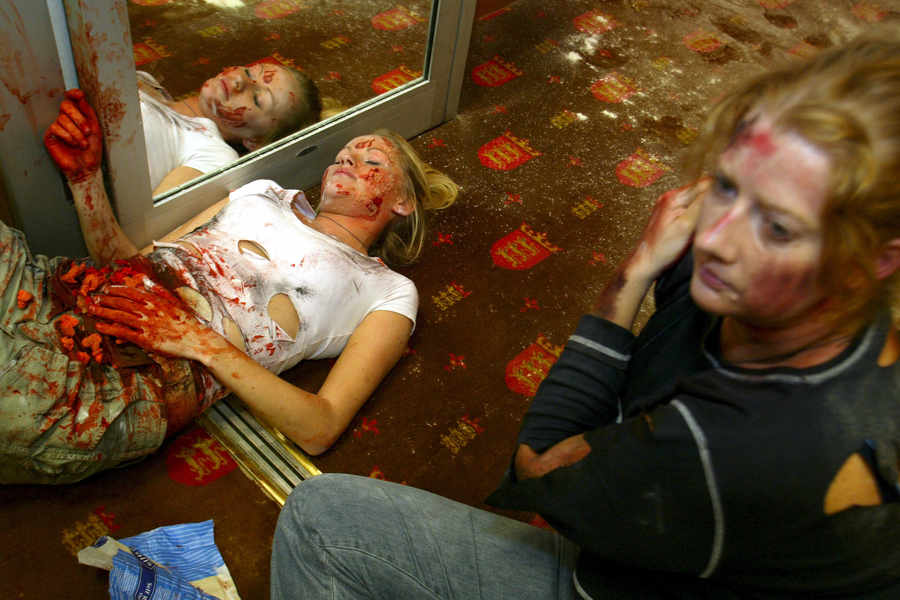
For many people, planning for the eventuality of emergency situations, both man-made and natural, would be more than enough to fill their working days, but that is only half of Mr James’ remit.
Eight years ago he moved to Jersey from Southend with wife Jane and daughter Tegan to lead the Island’s Fire and Rescue Service.
Times have changed since he stepped into his office for the first time in 2007 – never more so than in the financing of his department.
With the States forced to take action over a predicted £145 million ‘black hole’ by 2020, the Fire and Rescue Service have not been immune from funding cuts, which have resulted in the loss of three full-time firefighters.
Mr James readily admits the difficulties the force are facing, but says the situation is still manageable.
‘We don’t know if there are going to be any further savings requirements because the States have only just announced these,’ he said.
‘Our priorities are making sure our firefighters are fully trained and can do their job safely, as well as engaging with the public to try to prevent fires.
The emphasis will be about minimising the impact on those areas.
The aim is to carry on delivering the service we deliver, but doing so with fewer people and less money.
‘My job is also to make it clear when the cuts would make an impact.
‘I’ve got some ideas about when I’d start to get worried, but we haven’t got there yet.
‘If I saw any significant reduction in the number of firefighters I would get very concerned for their safety as well as the safety of the public.
‘The reality is that we are still part of a States savings programme, so it’s trying to marry up the two.’
Whether it is developing strategies to deal with the aftermath of a terrorist attack, overseeing training, attending blazes or fighting his corner to prevent cuts to his service, life for Mr James is never dull – and he wouldn’t have it any other way.
‘What I like about Jersey, and particularly about being the fire chief, is that my role is quite wide.
‘It can be operational – I can respond, I can get involved in the equipment that we order, the programmes, the procedures, as well as working to develop the new Fire and Rescue Law with the Home Affairs Minister.
‘It’s the same with my emergency response – that range you just don’t get anywhere else.’






